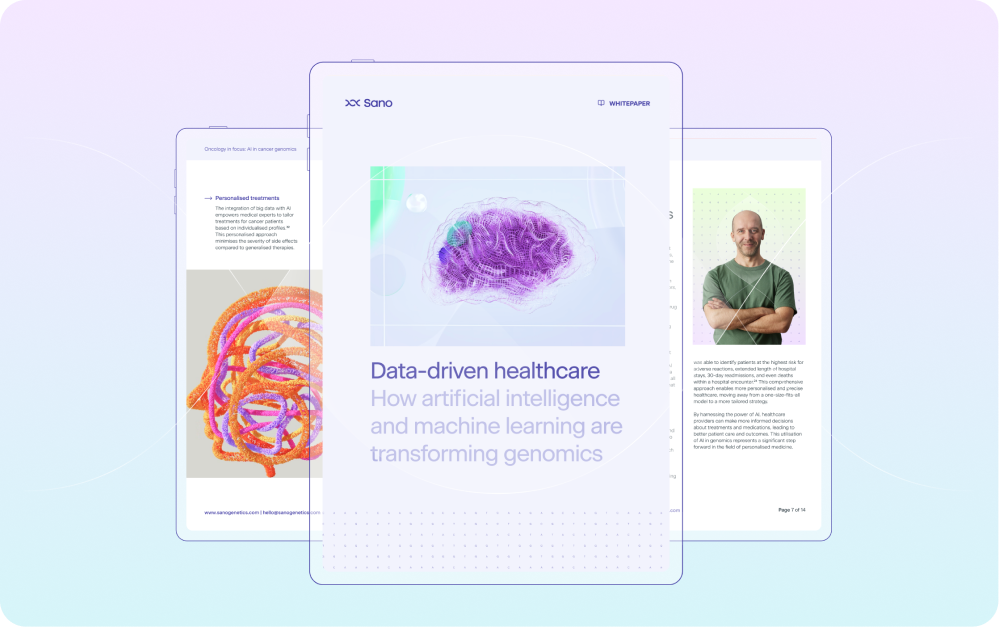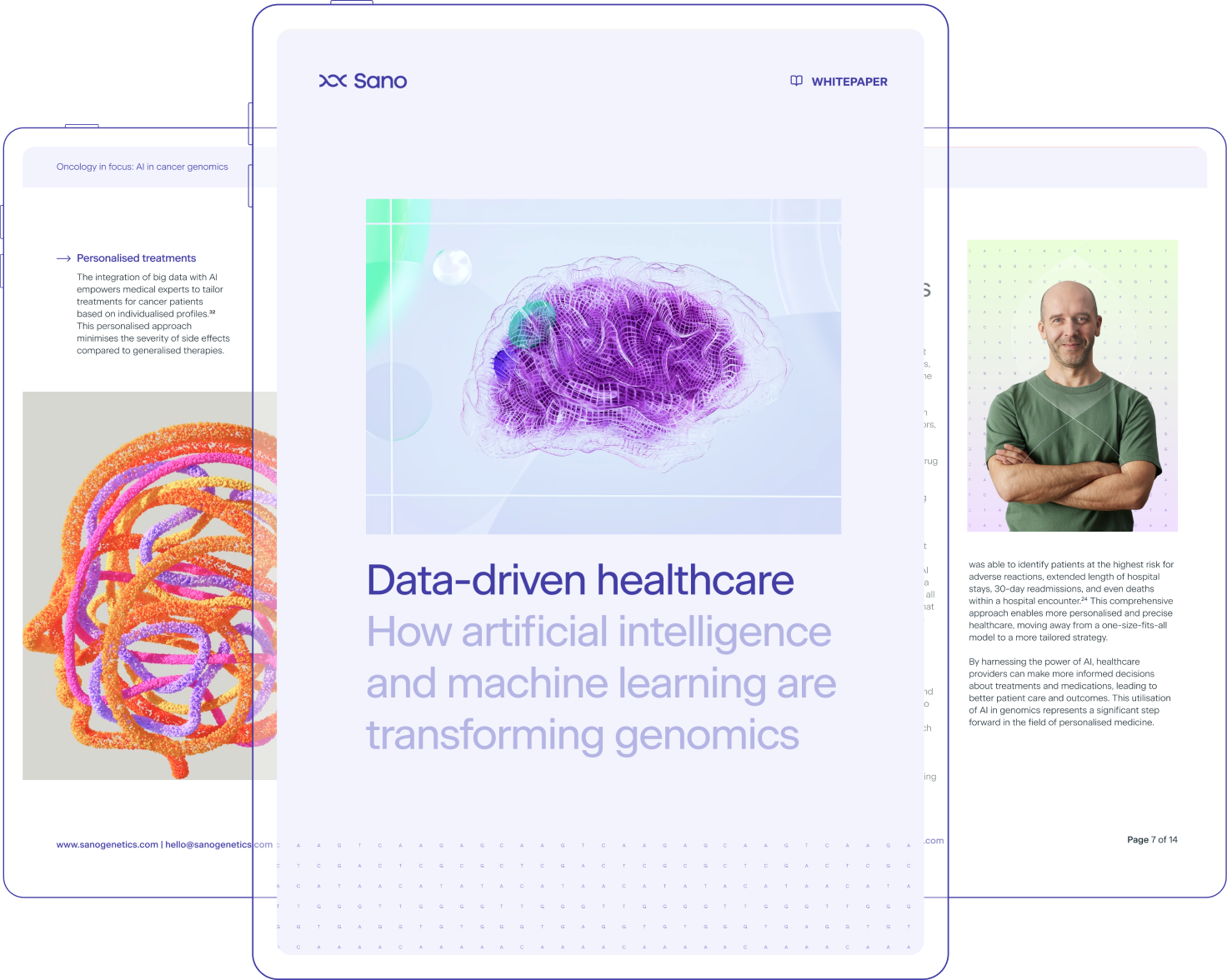Decoding health: How AI transforms genomic medicine

In the rapidly evolving world of healthcare, a profound transformation is taking place at the intersection of Artificial Intelligence (AI) and genomics. This convergence is not just a fleeting trend; it's a fundamental shift in how we approach medicine, diagnosis, and treatment. Our latest whitepaper explores this significant development, shedding light on how AI is unlocking new possibilities in genomic medicine.
AI's integration into genomics marks a leap forward in our ability to understand complex genetic information. It's changing the game by enabling the analysis of vast amounts of genomic data with unprecedented speed and accuracy. This capability is pivotal in identifying genetic markers and mutations, leading to faster and more precise diagnoses. But the implications extend far beyond diagnosis; AI is also revolutionising treatment strategies. By analysing an individual's genetic makeup, AI can guide healthcare professionals in tailoring treatments to each patient's unique genetic profile. This approach paves the way for personalised medicine, promising more effective treatments that are tailored to the specific needs of each patient.
However, this technological advancement isn't without its challenges. The use of AI in genomics raises crucial ethical considerations, especially concerning data privacy and potential biases in AI algorithms. Our whitepaper not only highlights the groundbreaking strides made in AI and genomics but also addresses these ethical dilemmas. It emphasises the importance of navigating this new terrain with caution, ensuring that the benefits of AI in genomics are realised responsibly and equitably. As we stand on the brink of this new era in healthcare, it's clear that AI's role in genomics will be instrumental in shaping a more personalised and efficient future for medical science. Download our whitepaper to learn more!

